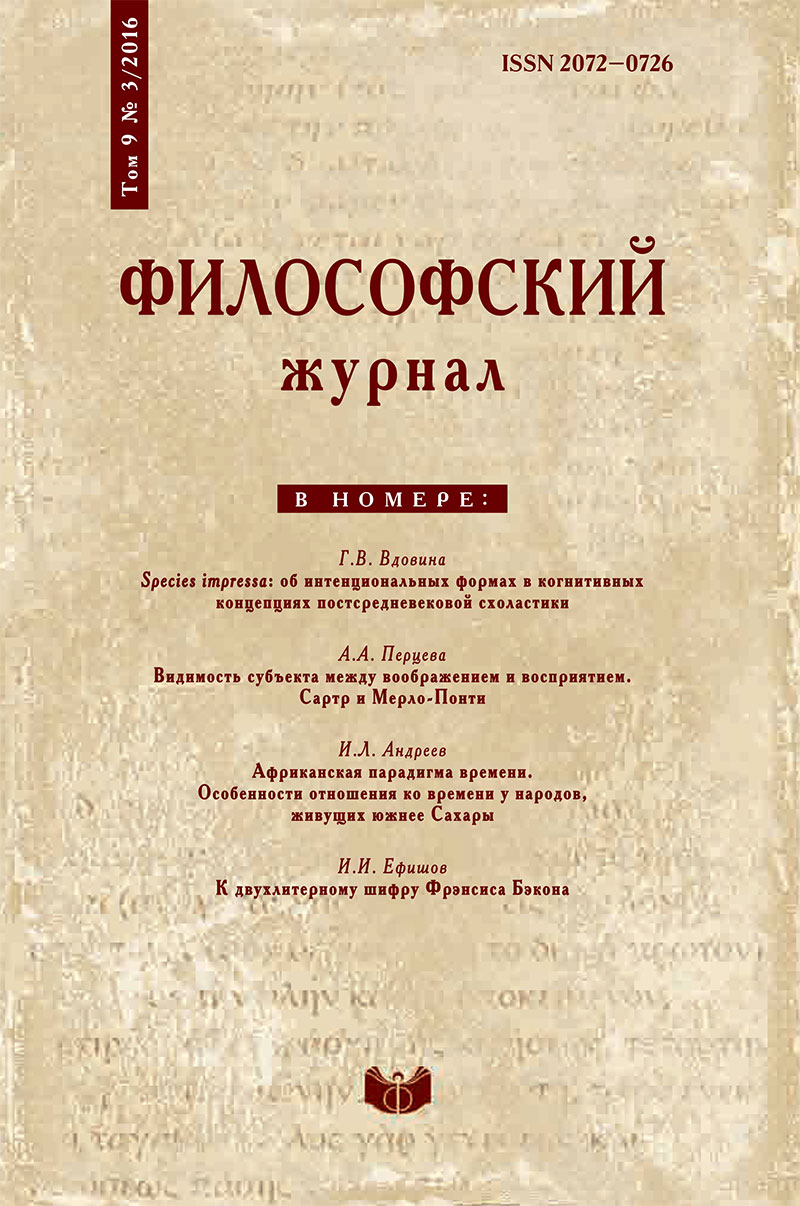The notion of scientific reality and the character of transition from classical to nonclassical science
DOI:
https://doi.org/10.21146/2072-0726-2016-9-3-25-40Keywords:
scientific reality, classical science, nonclassical science, naturalism, constructivism, realism, social relay theoryAbstract
In this paper, the author attempts a comparative analysis of classical and nonclassical scientific theories in order to answer the following questions: what does a scientific theory actually capture about reality? of what nature is the connection between theory and reality? how the failures of classical theory can be explained and which way the transition from classical to nonclassical theory proceeds? The corpus of the study comprises the texts of scientists, methodologists and philosophers of science which are used to illustrate the difficulties of the ontology and methodology of science. Among the methods adopted, M.A. Rozov's social relay theory stands out. Classical naturalistic ontology is immature, as is reflected in the inadequacy of judgments made about scientific knowledge and reality, which ultimately leads to the problem of the reality of the objects of inquiry. This phenomenon, however, activates the process of theorizing in science, prompting the scientists to develop methodology. At the heart of the transition from classical to nonclassical science, which occurs in the process of solving the problem of reality, there is the awareness that philosophical and methodological work in science should precede the development of any engineering projects of scientific activity and first establish the framework of goals and objectives that would determine the appropriate theoretical background and eventually help identify the most successful project strategy. The notion of reality in science is undergoing change the process of its theorizing: unlike classical science, where the real object is the object as it is furnished to the researching mind by nature, its reality being confirmed by direct observation, nonclassical science stresses the ambiguous character of the conformity of knowledge to reality and adopts a more sophisticated cognitive model in which only the information about reality obtained through experiment and observation is recognized as knowledge. The ontology of nonclassical science is not a straightforward one: the assignment of the status of reality to the objects of theory is carried out on the ground of an empirical confirmation of a theoretical hypothesis; such problems as the possibility of a full compliance of a given fragment of material world to the theoretical object or the natural existence of the objects of science, according to most philosophers of science, lie outside the cognitive limits of contemporary science.






